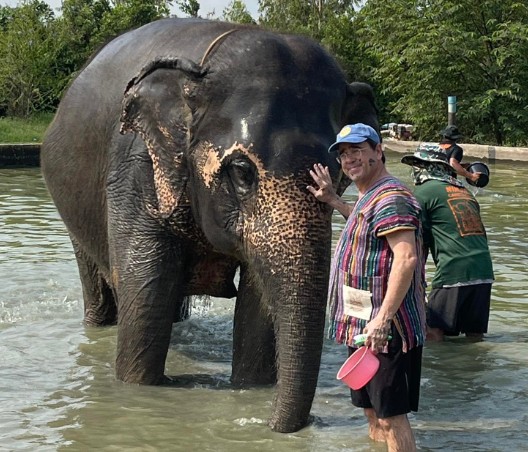The Abdication of American Leadership: Betraying Allies, Empowering Adversaries

For decades, the United States has been the anchor of global stability, a nation that upheld democratic values, defended its allies, and reinforced an international order built on cooperation and the rule of law. But in just one week, three stunning actions from the Trump administration signaled a dramatic departure from that legacy, sending shockwaves through the world and raising urgent questions about America’s role on the global stage.
First, at the United Nations, the U.S. broke ranks with its democratic allies and stood alongside Russia and North Korea – two of the world’s most notorious authoritarian regimes – as one of the few nations to oppose a General Assembly resolution demanding Russia withdraw its forces from Ukraine. The United States, long regarded as the leader of the free world, openly aligned itself with dictatorships rather than the allies it once championed. Then, in an astonishing act of defiance, the administration ignored a federal court order instructing it to restore funding for U.S. foreign aid programs. A Washington, D.C., judge found “no sign” that Trump’s team had complied with his ruling to lift the freeze on USAID funds – critical money that supports lifesaving humanitarian efforts worldwide. The decision left vital projects in chaos, delaying food, medical aid, and essential support to vulnerable communities in crisis zones – people will die because of this inaction.
And then came the moment that stunned the world: a high-profile Oval Office meeting with Ukrainian President Volodymyr Zelenskyy, meant to reaffirm America’s commitment to Ukraine’s fight for survival, instead devolved into a public humiliation. Trump berated Zelenskyy in front of gathered press, dismissing Ukraine’s struggle against Russian aggression. The meeting ended abruptly, with Trump refusing to sign a planned U.S.-Ukraine agreement and sending Zelenskyy out of the White House empty-handed. The message was unmistakable: America was turning its back on Ukraine, betraying a long-standing ally in its hour of need.
The backlash was immediate. Across Europe and beyond, leaders condemned these actions as disgraceful, warning that the United States was not just retreating from its role as a global leader but actively undermining the alliances and principles that had defined American foreign policy for generations. This was more than a shift toward isolationism – it was a deliberate realignment that signaled to autocrats worldwide that the U.S. was no longer a reliable force against aggression.
America’s Traditional Leadership Role
For most of the last century and more, the United States embraced the mantle of global leadership – a role it assumed for good in the wake of World War II. American forces were instrumental in saving the world from tyranny, defeating fascist powers, and emerging in 1945 as a superpower committed to defending freedom. In the war’s aftermath, U.S. leaders rejected a return to isolationism and instead actively shaped a stable international order.
The United States poured resources into rebuilding and securing a war-torn world: it launched the Marshall Plan, which provided over $13 billion to help rebuild Western Europe’s economies and prevent the spread of Soviet communism. It also spearheaded the creation of lasting international institutions – leading the establishment of the United Nations, the World Bank and International Monetary Fund, and ultimately NATO – to promote collective security, economic cooperation, and the rule of law among nations.
For decades, American presidents of both parties affirmed a basic principle: that U.S. commitment to its allies and global stability was non-negotiable. This meant upholding defense treaties, supporting democracy and human rights, and maintaining a strong military presence to deter aggressors. By serving as the “leader of the free world,” the U.S. helped prevent another world war and fostered an international environment where free nations could thrive in relative peace.
A Bipartisan Legacy of Global Leadership
American presidents from Dwight D. Eisenhower through Joe Biden consistently reinforced this global leadership role. In 1953, President Eisenhower declared that destiny had laid upon the United States “the responsibility of the free world’s leadership.” He stressed that America must stand united with other free peoples and warned never to appease aggressors – reminding Americans that “a soldier’s pack is not so heavy a burden as a prisoner’s chains.”
This ethos of defending freedom was echoed by President John F. Kennedy, who famously pledged in his inaugural address that the U.S. would “pay any price, bear any burden, support any friend, oppose any foe to ensure the survival and success of liberty.”
At the height of the Cold War, Ronald Reagan spoke of America as a “shining city on a hill” and stood resolutely against the “evil empire” of Soviet communism, affirming the nation’s role in confronting authoritarian threats. Even after the Cold War, U.S. leaders held firm to alliance commitments: George H.W. Bush built an international coalition to expel Saddam Hussein from Kuwait in 1991, and Bill Clinton expanded NATO and intervened to halt ethnic cleansing in the Balkans.
In the 21st century, George W. Bush, in the wake of 9/11, invoked America’s duty to lead a global fight against terror and tyranny. And Barack Obama reminded a new generation that “America must always lead on the world stage. If we don’t, no one else will.”
For decades, America’s leadership role was defined by its willingness to stand with allies and oppose aggressors. Now, under Trump, that commitment has been discarded – replaced by a pattern of betrayal that leaves democracies vulnerable and emboldens authoritarian adversaries.
The Consequences of Abdication
By turning away from this proud legacy, America risks dangerous consequences for global security and stability. If the United States abdicates its role as leader of the free world, the likely outcomes include:
- China emboldened to invade Taiwan: Seeing U.S. inaction and weakened commitments, Beijing could conclude it can attack or annex Taiwan with impunity. A retreating America would remove the strongest deterrent to Chinese aggression, potentially leading to a war in East Asia that destabilizes the entire region.
- Russia expanding its aggression: Vladimir Putin, already encouraged by U.S. opposition to aiding Ukraine, may feel free to extend Russia’s military aggression toward other neighbors. A diminished American presence could tempt Moscow to menace NATO’s eastern flank or further redraw borders by force, reversing decades of post-Cold War peace in Europe.
- Fracturing of alliances and new arms races: Longstanding U.S. allies may lose faith in American security guarantees and seek to arm themselves or strike separate deals. NATO – the cornerstone of transatlantic security – could weaken or fragment without U.S. leadership, prompting countries like Poland, the Baltic states, Japan, or South Korea to consider developing their own nuclear deterrents or new alliances.
- A shift in global power to autocracies: As Washington pulls back, authoritarian powers like China and Russia would rush to fill the vacuum. Beijing could dominate international institutions and trade frameworks, setting rules that undermine democracy and human rights. U.S. economic and diplomatic influence might fade – potentially eroding the primacy of the U.S. dollar and Western-led institutions – as other nations gravitate toward China’s orbit.
America’s Future: Reclaim or Retreat?
Donald Trump’s reckless retreat from global leadership is now official U.S. policy, but it does not reflect the will of the American people – the overwhelming majority of Americans value freedom, alliances, and the nation’s historic role as the leader of the free world. Yet, despite their belief in these principles, they now find themselves unwilling participants in a foreign policy that betrays allies and empowers adversaries. This is not just a shift in diplomacy; it is a crisis of identity. Americans are watching in horror as their country, once a beacon of democracy, pivots toward appeasement and isolationism at the highest levels of government. They did not choose this path, yet they are being dragged along as their nation turns away from its principles and emboldens those who seek to dismantle them.
But if history has shown anything, it is that the American people do not remain bystanders for long. Leadership may be abdicated from the top, but the nation’s true character is defined by those who refuse to accept that betrayal as its future. Now is the time for Americans to rise up and speak with one voice – by holding elected officials accountable through relentless civic engagement, by voting for leaders who will stand by our allies, by supporting independent journalism that exposes the truth, and by making it clear to the world that the values of democracy, freedom, and alliance are not negotiable. The world is watching – not just what our leaders do, but whether the American people will reclaim their country’s role before it is too late.









